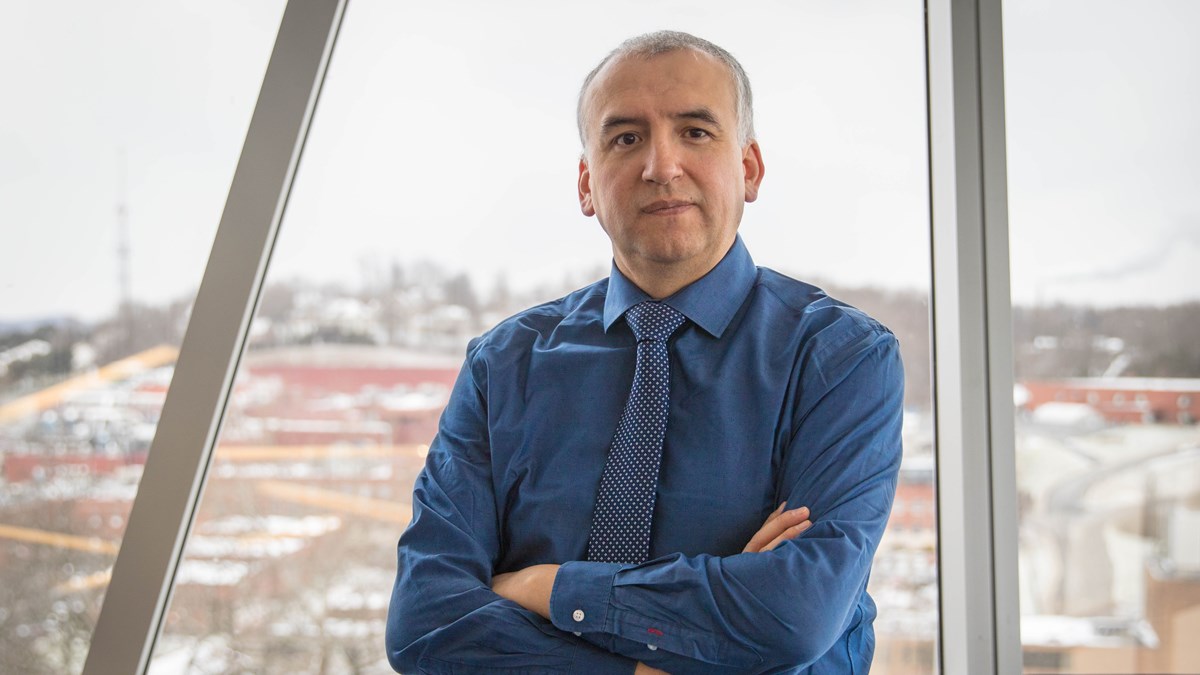Osvaldo Navia, M.D.

“We are proud to have an inclusive, dynamic and standardized program where we pay close attention to the human and social aspect of the team members. In addition, we grow together and support each other creating a nurturing environment at WVU.”
Why did you choose to become a doctor in your field? Was there a specific “a-ha” kind of moment?
I decided to become a geriatrician early during my medical school training when I was exposed to older adults with specific medical necessities that can be successfully managed if you understand their clinical, psychological and social challenges. At that time, I understood that geriatrics is a mission more than a career.
What in your educational experience and training stood out to you, and what advice would you share with students who are in that position now?
My training in geriatrics at Montefiore Medical Center helped me to understand that older adults deserve a dedicated and specialized clinical assessment keeping at the same time a good quality of life balance. As the care of my patients is demanding and complicated, my geriatric training gave me the tools to enjoy working with family members and other professionals and try to orchestrate the best care for my patients.
Why did you choose your field? Does it have any special significance for West Virginia?
The rapid aging of the West Virginia population is a pressing issue that needs to be approached with a strategic plan. West Virginia is the third oldest state in the nation only after Maine and Florida. One part of the strategic plan is to educate our medical residents to take a better care of our older adults so, a geriatric fellowship can contribute generously to achieve our goals.
How would you describe your day-to-day to a class of middle schoolers?
Geriatricians enjoy taking care of older adults in hospitals, clinics, nursing homes and patient's homes. We specialize in specific medical problems such as: memory deficit, confusion, falls, bad reaction to medications and goals of care identification.
Why did you choose to come work for West Virginia University?
I am always looking for challenges and trying to disseminate the geriatric philosophy. After meeting Dr. Sarwari and learning we did not have a formal section of geriatrics for some years, I realized that I could make a difference at WVU.
What’s the best thing about doing what you do?
Getting the sense of relief and a smile from my patients and their families when they feel a geriatrician fully understands their clinical challenges willing to guide them through the complexity of our health system.
What are your aspirations while at WVU?
I would like to create an integrated service where the ER, inpatient service, short rehabilitation facilities, home health, palliative and hospice can coordinate under the guidance of board-certified geriatric and palliative medicine clinicians.
What honors/awards/accolades stand out to you in your career?
I organized multiple geriatric and palliative medicine divisions and sections around the USA. I am proud to have had the opportunity to organize the first palliative medicine fellowship and the first internal medicine geriatric fellowship in West Virginia.
How would you describe the culture of your program?
We are proud to have an inclusive, dynamic and standardized program where we pay close attention to the human and social aspect of the team members. In addition, we grow together and support each other creating a nurturing environment at WVU.
Tell us something unique about you that others may not know.
I am an avid soccer player and like to organize soccer teams in Morgantown.